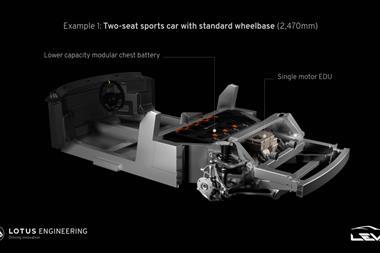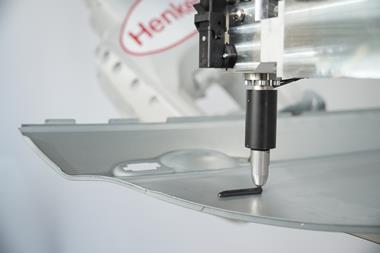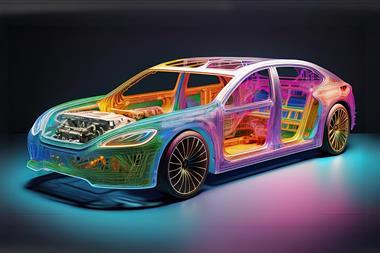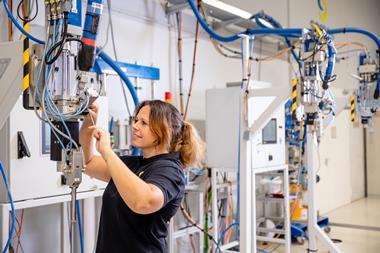 UK – The vehicle-maker says it has cut 207kg from its model range over the past 12 months, after following a holistic approach to weight loss. The chassis for the Elise and Exige now weigh just 68kg each, and the company’s heaviest car is only 1,395kg.
UK – The vehicle-maker says it has cut 207kg from its model range over the past 12 months, after following a holistic approach to weight loss. The chassis for the Elise and Exige now weigh just 68kg each, and the company’s heaviest car is only 1,395kg.
“We’re not concerned with following other car manufacturers. Innovation comes from taking a new approach, and we don’t stop looking,” commented Jean-Marc Gales, CEO of Group Lotus. He quoted the company’s founder, Colin Chapman, who said: “Adding power makes you faster on the straights, subtracting weight makes you faster everywhere”.
Lotus develops its cars through a ‘lightweight laboratory’ concept at its Hethel, UK, factory to ensure that every model embodies the company’s ‘light is right’ principle. Components are considered in isolation, within sub-assemblies and in the vehicle as a whole, enabling them to be assessed, optimised and re-engineered. Every component serves a functional and not only aesthetic purpose, including any carbon fibre, which “must produce tangible benefits”.
For the chassis, Lotus uses aluminium to halve the weight compared with steel, joining the strong and stiff sections by epoxy adhesive. According to Lotus, this is “substantially cheaper” than a carbon-fibre chassis of equivalent weight, as well as being “easier to adapt” to model specifications.
The Elise Sport and Sport 220 models have each undergone a weight reduction of 15kg, featuring a battery which cuts 3.5kg and optional forged wheels saving 5kg. The Elise Cup 250 also saves weight through the following: carbon seats (6kg); ultra-light forged wheels (1.5kg); a lithium-ion (Li-ion) battery (10kg); and a carbon pack consisting of rear, wing, front splitter, rear diffuser and floor extender components (10kg).
The new roadster Exige Sport 350 weighs 1,085kg, having cut 91kg from the previous Exige S model by means of: a louvered tailgate (3kg); a redesigned gearshift mechanism (3kg); a revised subframe (3kg); enhanced body panels (12kg); and optional carbon composite components (30kg).
Weighing 1,325kg, the Lotus Evora Sport 410 has cut 70kg in comparison with the Evora 400. A single-piece carbon tailgate replaces five components on the previous model, saving 10kg, while another 10kg was cut by the installation of a Li-ion battery. Fitting carbon sports seats reduced the weight by a further 6kg.


































